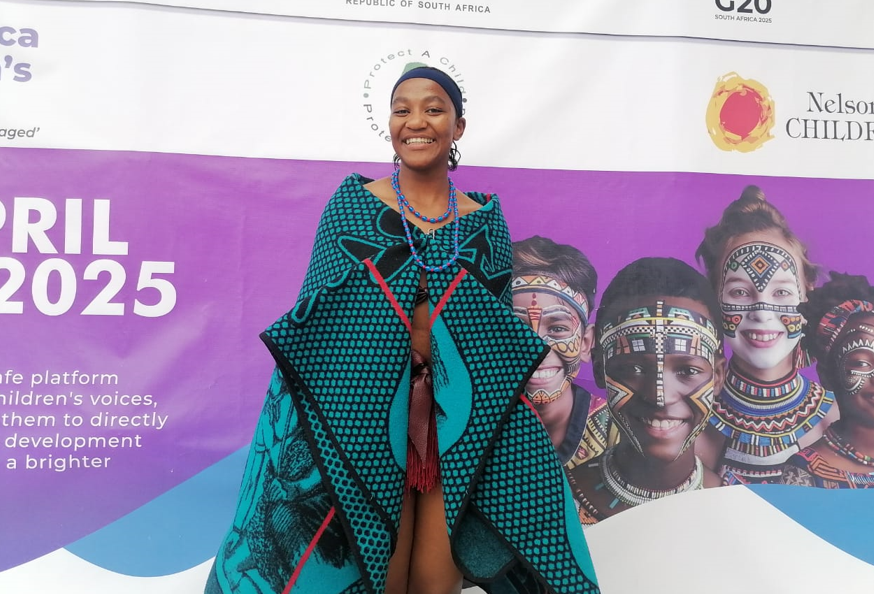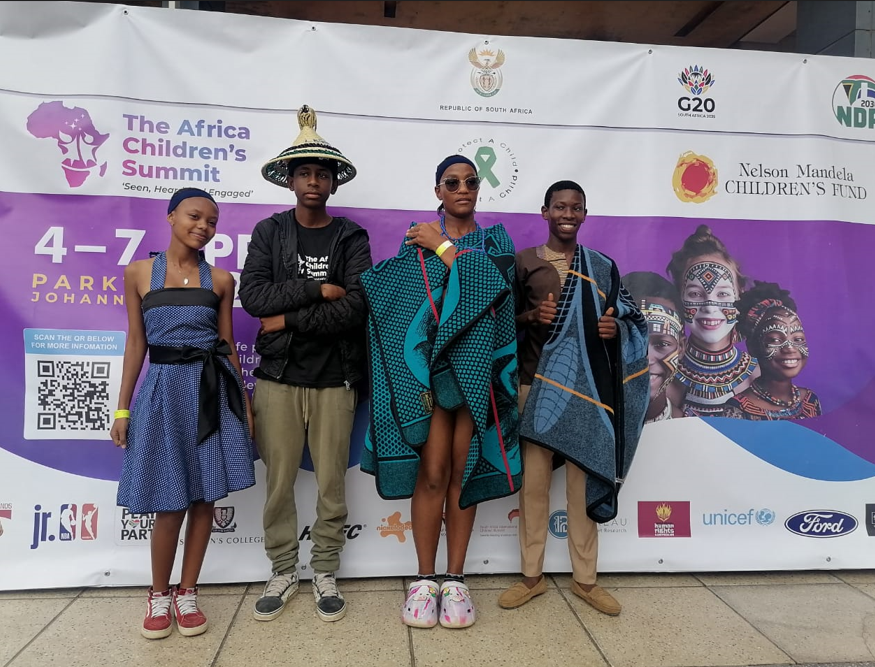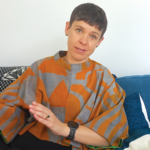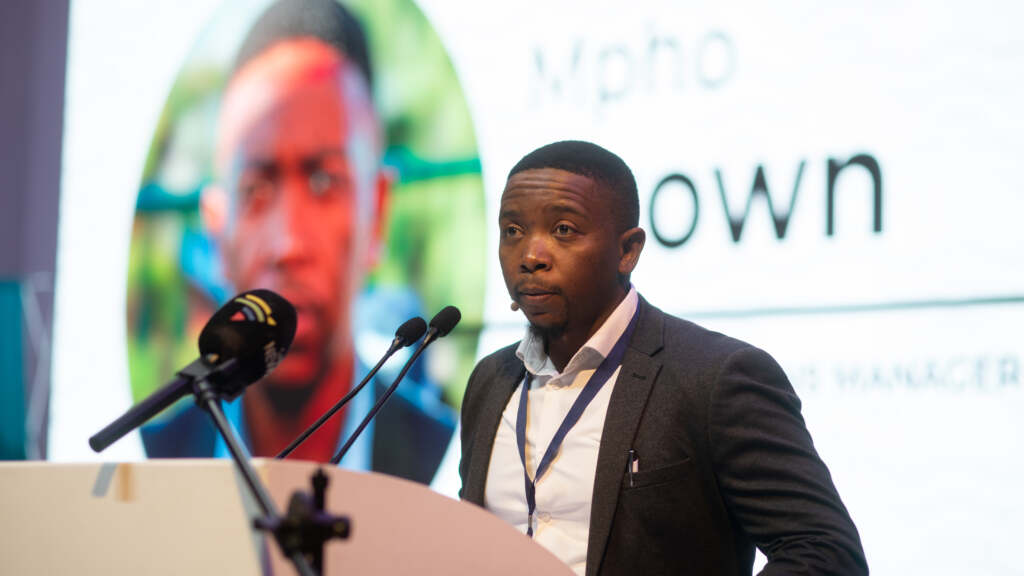Marcia Moyana and Ntsoaki Motaung
Children from across the African continent came together at the Africa Children’s Summit (ACS), held in Johannesburg, South Africa, from 4 to 7 April, to urge leaders to meaningfully include them in decision-making processes.
Co-hosted by the Nelson Mandela Children’s Fund (NMCF) and South Africa’s Department of Social Development (DSD), the hybrid conference gathered over 300 children from 50 African countries under the theme “Seen, Heard, and Engaged.”
As a child-led event, the summit featured various discussions in which children shared their experiences and ideas on shaping policies to ensure the full realisation of their rights.
Dr. Linda Ncube-Nkomo, CEO of the Nelson Mandela Children’s Fund, noted that the inaugural ACS was held in 2023 in Nairobi, Kenya, marking the first time children from across the continent spoke in a unified voice.
She acknowledged that while many African countries have ratified the Convention on the Rights of the Child, they have yet to fully prioritise the best interests of children as envisioned in the treaty.
Millions of children across the continent continue to face violence through conflict, war, and abuse.
“We need to see this type of gathering become a permanent feature on the calendars of governments that are serious about child participation, and we need to see them allocate the resources required for such initiatives to be realised,” said Ncube-Nkomo.
She added: “Between these major summits, we must ensure that children are capacitated in their own countries—on the ground—so that when they come to the summits, they are prepared for meaningful discussions on common issues affecting children across the continent. These are the matters governments need to be focusing on.”
Topics discussed at the summit included children’s rights, safety, access to education, climate change, artificial intelligence (AI), and more. These issues were later captured in a Children’s Outcome Statement, which was presented at the Africa Committee of Experts on the Rights and Welfare of the Child (ACERWC) hosted in Maseru, Lesotho.

SADC children add their voices
Newsday caught up with several young leaders from the Southern African Development Community (SADC) region at the ACS to hear their thoughts and messages to leaders within the region and across the continent.
Tara Hendricks – South Africa, Chairperson of ACS
“We overlook how important climate change is, and the safety of all children is very important, so I think action should be taken, and we should be placing the responsibility on the adults. Our leaders should prioritise children’s rights and needs.”
George Kande – Zambia, Co-chairperson of ACS
“I would like for our leaders to make a platform where children can be put in because you cannot do anything for a child without a child. Do not put yourselves in children’s shoes because they will not fit. The children’s shoes are too small. They must allocate time for children to come and listen to some of the different issues that they are facing because these issues are unique.”
Reitumetse Mokoma – Lesotho Child Prime Minister
“As the Prime Minister of the Lesotho Children’s Parliament, I have been inspired to do my best to ensure that the Lesotho government does more to improve child participation. Some of the things that need to improve in my country are access to sanitary pads to end period poverty and for children from the rural areas to access education, especially during climate change-induced disasters because they currently struggle to access schools.”
Khahliso Nthunya – Lesotho Child Ambassador
“While the participation of children in Lesotho is there, there should be more resources invested to promote our needs. Our Prime Minister, Sam Matekane, should also be more involved so that he can hear directly from us about what we need as children. More should also be done to remove the stigma that prevents children from accessing their sexual and reproductive health rights.”
Dikgang Morudu – South Africa, President of the Nelson Mandela Children’s Parliament
“We come from the same continent, and we must work collaboratively to ensure that we are speaking one voice when it comes to African rights. The African Union should make sure that whenever we are having African continent-related situations or events, they must come and allocate resources to the children so that children can actually participate.”
Paidamoyo Mugugu – Zimbabwe, Child Leader
“Children are being raped, abused and are given away for child marriages by their families. In some instances, they will report the cases, but a week later, the perpetrator will be seen walking freely, continuing to abuse children. I would like to see the policy for child justice being strengthened to prevent abuse cases in the continent.”
Elija de Frank Caetano – Mozambique Children’s Parliament President
“Climate change has harmed our ability to attend school and learn properly, especially when school infrastructure is damaged by cyclones. Some children have also lost their homes, and their mental health has been affected by the traumatic storms. We want our governments to also advance inclusive education for all children.”
At ACECRW
Ketia Shabilenge – Child Representative, Democratic Republic of Congo
“We want peace, but it’s an unknown concept. We don’t know what it is. We ask our parents, and they tell us it’s a distant memory.”
Elizabeth Matola – South Africa Child Rights Defender and Climate Change Campaigner
“Today, I stand before you to reflect on how climate change is not just an environmental crisis but a grave violation of children’s rights, rights that are fundamental to life itself. The right to education, nutritious food, health, clean water and sanitation and the opportunity for a dignified future. Most importantly, I am here to call you to action. The time to act is now. Let me paint a picture for you… Imagine a child who has to walk miles away every day to fetch water for her family in a drought-stricken region because of extreme heat. The water she collects is unclean, but she has to take it anyway because that’s all they have. This water scarcity leads to this child missing school and jeopardise her health. Her family decides to marry her off early, believing that this will ease their burden. This young girl has already lost the opportunity to build herself a dignified future and instead is now burdened with more household responsibilities.”
Mavura Princess Jasmeen – Child Representative Tanzania
“Once you limit a girl from having education just because she’s pregnant, we won’t get future doctors, we won’t get pilots, the ones who are going to raise our country’s economy.”
Speaking at the ACECRW, Anita Otieno from the Centre for Reproductive Rights said adolescents, particularly girls, continue to face systemic barriers in accessing comprehensive sexual and reproductive health services. These include contraception, safe abortion care, HIV prevention and treatment, and access to accurate, age-appropriate information on comprehensive sexuality education.
“Restrictive laws, harmful cultural norms, misinformation and disinformation, and the persistent stigmatisation of adolescent sexuality intensify these barriers,” she said.
She noted that many African countries are witnessing a troubling rollback of policies and programs that once aimed to empower adolescents with the knowledge and services necessary to make informed decisions about their bodies and futures.
Meanwhile, Dr Laila O. Gad, Representative of the UNICEF Office to the African Union (AU) and Economic Commission for Africa, remarked during her opening address that recent global cutbacks in development assistance are having a devastating impact on children.
She highlighted that millions of children are now affected by disruptions in critical services, such as education, nutrition, life-saving health care, access to safe water, sanitation and hygiene, child protection, and transformative social protection, including cash assistance for families in humanitarian crises. Displaced, refugee, and migrant children are especially vulnerable.
Deputy Prime Minister of Lesotho, Justice Nthomeng Majara, stated that the conference came at a critical time, as Lesotho is grappling with an alarming rise in reported cases of violence against children.
“While we have made some progress in addressing these challenges, it is being undermined by the growing scourge of child abuse, including child marriage, trafficking, sexual violence, and even the murder of young children,” she said.
She added that Lesotho has developed a national response plan to combat violence against children, which is already in implementation. However, she admitted that more needs to be done to address the severity and frequency of reported cases.
Tebello Tšepe, Assistant Commissioner of Police in charge of the Criminal Investigation Department (CID), revealed disturbing statistics from December 2024. Between January and September 2024, 364 cases of violence against children were reported.
“Of these, 284 were sexual offences, mostly involving girls. However, we are witnessing an increase in reported sexual offences involving boys. There were also 36 cases of grievous bodily harm (GBH) and 31 cases of violations under the Child Protection and Welfare Act,” he said.
He noted that Leribe district recorded the highest number of child-related sexual offences, with 54 cases, followed by Quthing with 38 cases. “In most cases of child sexual abuse, the victims are between the ages of 12 and 17,” Tšepe added.
Key highlights of the 45th Ordinary Session of the African Committee of Experts on the Rights and Welfare of the Child (ACERWC) included panel discussions on emerging issues affecting children across Africa, consideration of communications and complaints related to child rights violations, and engagement with civil society organisations, partners, and child rights advocates.
Summary
- “We need to see this type of gathering become a permanent feature on the calendars of governments that are serious about child participation, and we need to see them allocate the resources required for such initiatives to be realised,” said Ncube-Nkomo.
- These issues were later captured in a Children’s Outcome Statement, which was presented at the Africa Committee of Experts on the Rights and Welfare of the Child (ACERWC) hosted in Maseru, Lesotho.
- “We overlook how important climate change is, and the safety of all children is very important, so I think action should be taken, and we should be placing the responsibility on the adults.

Your Trusted Source for News and Insights in Lesotho!
At Newsday Media, we are passionate about delivering accurate, timely, and engaging news and multimedia content to our diverse audience. Founded with the vision of revolutionizing the media landscape in Lesotho, we have grown into a leading hybrid media company that blends traditional journalism with innovative digital platforms.







